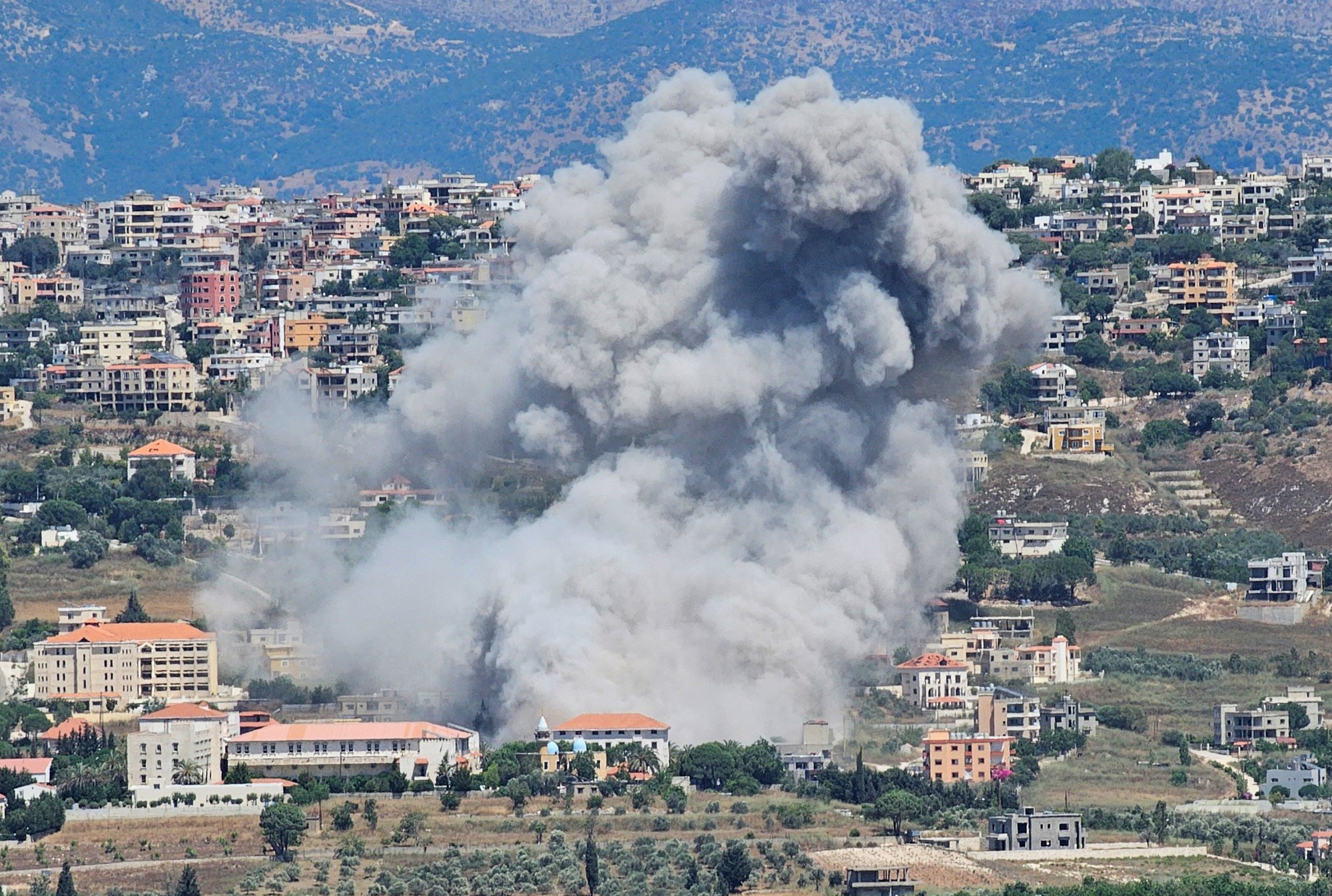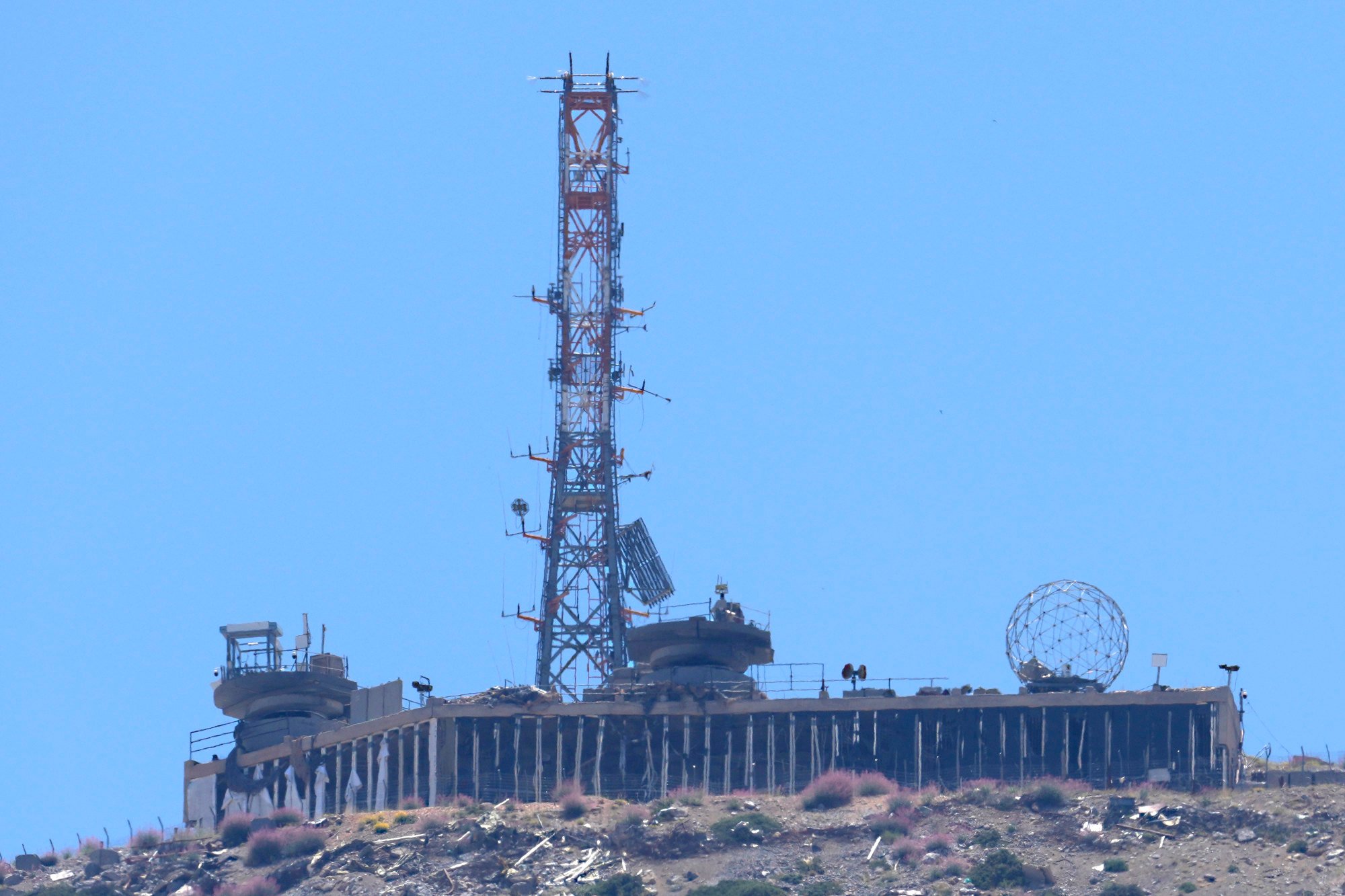Israeli Defence Minister Yoav Gallant said during a visit to Washington that his country did not want war in Lebanon, but could send it back to the “Stone Age” if diplomacy failed.
“We don’t want to get into a war because it’s not good for Israel. We have the ability to take Lebanon back to the Stone Age, but we don’t want to do it,” Gallant told reporters on the last day of the visit on Wednesday.
“We do not want war, but we are preparing for every scenario,” he said.
“Hezbollah understands very well that we can inflict massive damage in Lebanon if a war is launched.”

Fears of an all-out war in Lebanon have risen in recent weeks as violent exchanges between Israel and the Iran-backed militant group have intensified.
The two sides have been trading regular cross-border fire ever since Hezbollah ally Hamas’ October 7 attack on southern Israel sparked the ongoing war in the Gaza Strip.
Gallant said Wednesday that Israel had killed more than 400 Hezbollah “terrorists” in recent months.
According to an Agence France-Presse tally, at least 481 people have died in Lebanon as a result of the Israel-Hezbollah clashes since October 7, including 94 civilians.
On the Israeli side, at least 15 soldiers and 11 civilians have been killed, according to Israel.
Lebanon’s national news agency reported an Israeli strike on Wednesday night that destroyed a building in Nabatiyeh, wounding five people who were in the vicinity.
Gallant’s warning to Hezbollah came after the outgoing United Nations humanitarian chief warned that a spread of the Israel-Gaza war to Lebanon would be “potentially apocalyptic”.
Martin Griffiths described Lebanon as “the flashpoint beyond all flashpoints”.
“It’s beyond planning. It’s potentially apocalyptic,” warned Griffiths whose term as UN humanitarian coordinator ends this week.
A war involving Lebanon “will draw in Syria … it will draw in others”, he told reporters in Geneva. “It’s very alarming.”
Hezbollah leader Hassan Nasrallah said in a speech last week said militant leaders from Iran, Iraq, Syria, Yemen and other countries have previously offered to send tens of thousands of fighters to help Hezbollah, but he said the group already has more than 100,000 fighters.
“We told them, thank you, but we are overwhelmed by the numbers we have,” Nasrallah said.
Germany on Wednesday echoed a Canadian warning from the day before, urging their citizens in Lebanon to leave the country.
“German nationals are urgently requested to leave Lebanon,” updated foreign ministry advice in Berlin said.

“The current heightened tensions in the border area with Israel could escalate further at any time.”
On Tuesday, Ottawa advised Canadians to leave Lebanon “while they can”.
Prior to this conflict, Israel and Hezbollah had avoided a major clash since a month-long war in 2006, deterred since then by mutual threats of catastrophic destruction.
Hezbollah’s arsenal has grown enormously since 2006.
Hezbollah has downed Israeli drones, flown drones at Israeli targets, and used sophisticated guided rockets that capture footage as they approach their targets, images later broadcast on the group’s al-Manar TV.
Hezbollah fired Iranian-made Falaq 2 artillery rockets for the first time on June 8, able to carry a bigger warhead than the Falaq 1 it has fired in the past.
Its rockets have also set off wildfires in northern Israel.
Additional reporting by Associated Press and Reuters

